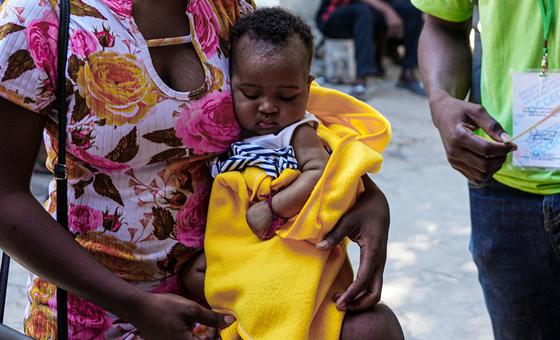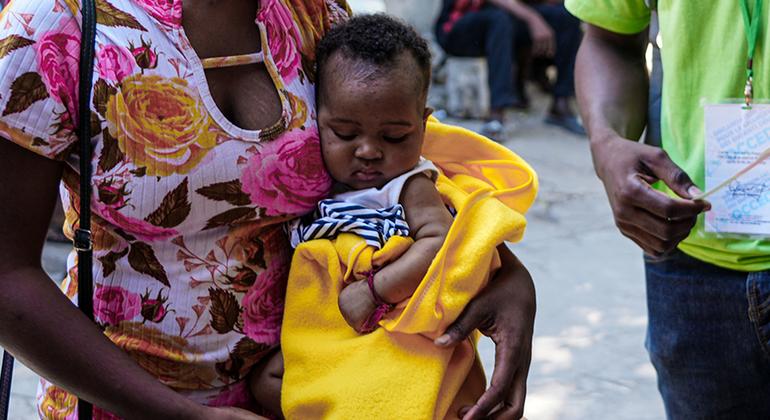
UN Spokesperson Stéphane Dujarric told reporters in New York that António Guterres wanted to see “urgent action, particularly in providing financial support for the multinational security support mission”, which has been authorized by the Security Council in a bid to restore law and order to the crisis-wracked nation, the poorest in the western hemisphere.
Kenya and Haiti signed a deal a few days ago which expects to see a contingent of 1,000 Kenyan officers lead the support mission, although it is unclear whether Kenya’s high court will allow it to go ahead amidst constitutional challenges.
Benin confirmed last week it would supply personnel to the mission, which Mr. Dujarric reminded is not a UN peacekeeping force. “This force will need to address the pressing security requirements of the Haitian people and prevent the country from plunging into further chaos,” he said.
Adding to the insecurity is the whereabouts of Prime Minister Ariel Henry, who was in the Kenyan capital to sign the deal, but has not yet returned to Haiti, which has been living under a 72-hour state of emergency and curfew.
Around 80 per cent of the capital is now controlled by the armed gangs who tried to take control of Haiti’s main airport on Monday in a bid to oust the current government and prevent the controversial premier’s return.
Death and displacement continues
The UN humanitarian affairs office, OCHA, reported that fresh violence and upheaval in the capital has led around 15,000 people to flee their homes, many of whom were previously displaced.
“Despite the security constraints, our humanitarian partners on the ground have begun to respond to these new displacements by providing food, hygiene and health kits, mattresses, blankets and sheets as well as lamps”, said the UN Spokesperson.
The World Food Programme (WFP) and partners have delivered over 5,500 hot meals to some 3,000 people living in three new displacement sites while the International Organization for Migration (IOM) has started distributing emergency shelter material to more than 300 families.
The humanitarian community in Haiti is calling on all sides to put an immediate stop to the violence, Mr. Dujarric emphasized, to allow safe access to those civilians in need.
Around 5.5 million people – nearly half of the country’s population – need humanitarian assistance.
Funding deficit
This year’s $674 million humanitarian appeal for Haiti is just 2.5 per cent funded, with only $17 million pledged so far.
On Wednesday, the Security Council is scheduled to hold a private meeting on the situation in Haiti, when the head of the UN mission in the country, Maria Isabel Salvador, is expected to brief.
The UN chief is also calling for all political actors “to swiftly agree to the necessary steps to advance the political process towards the restoration of democratic institutions through the holding of elections”, Mr. Dujarric said.



